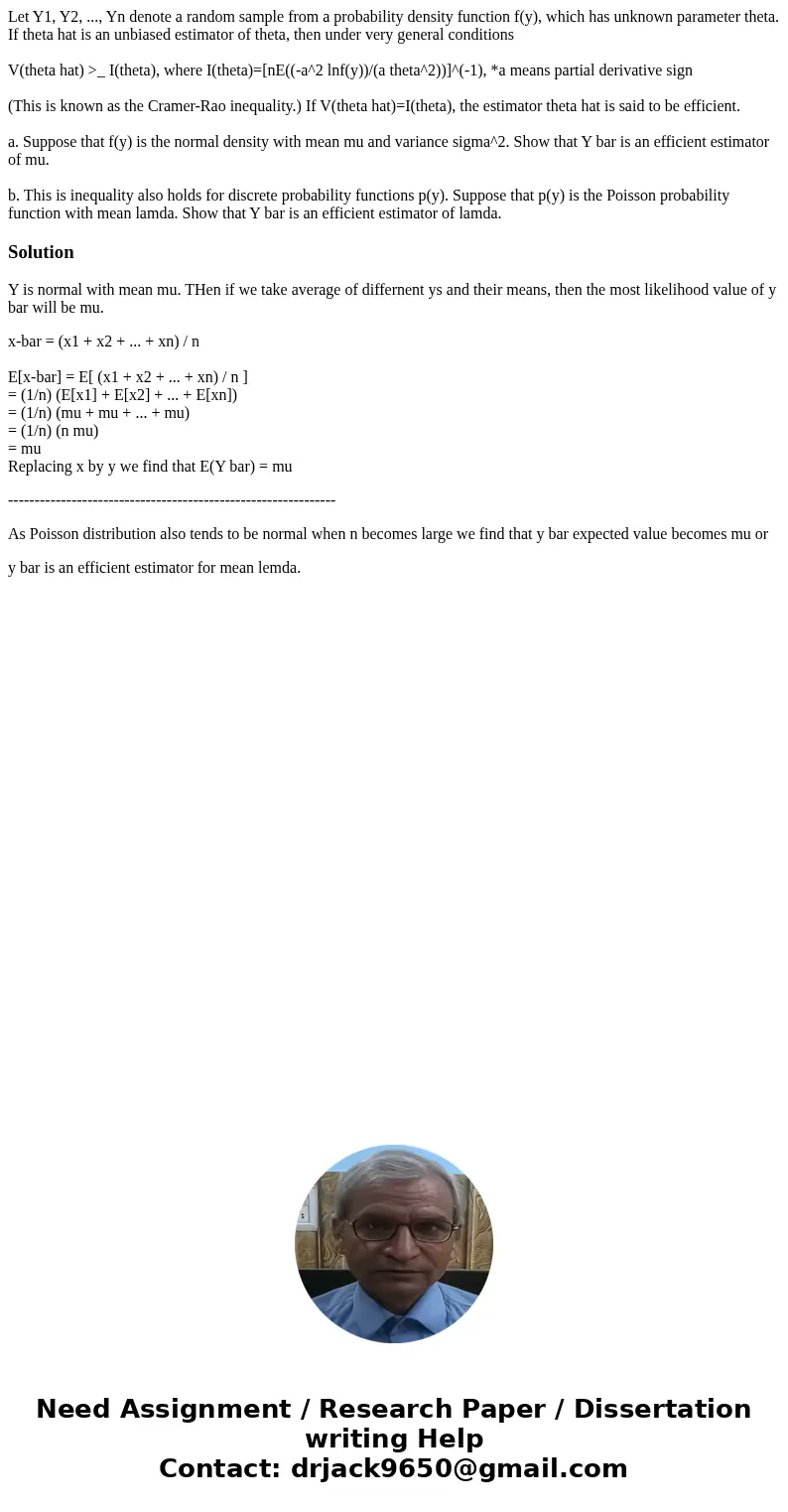Let Y1 Y2 Yn denote a random sample from a probability dens
Let Y1, Y2, ..., Yn denote a random sample from a probability density function f(y), which has unknown parameter theta. If theta hat is an unbiased estimator of theta, then under very general conditions
V(theta hat) >_ I(theta), where I(theta)=[nE((-a^2 lnf(y))/(a theta^2))]^(-1), *a means partial derivative sign
(This is known as the Cramer-Rao inequality.) If V(theta hat)=I(theta), the estimator theta hat is said to be efficient.
a. Suppose that f(y) is the normal density with mean mu and variance sigma^2. Show that Y bar is an efficient estimator of mu.
b. This is inequality also holds for discrete probability functions p(y). Suppose that p(y) is the Poisson probability function with mean lamda. Show that Y bar is an efficient estimator of lamda.
Solution
Y is normal with mean mu. THen if we take average of differnent ys and their means, then the most likelihood value of y bar will be mu.
x-bar = (x1 + x2 + ... + xn) / n
E[x-bar] = E[ (x1 + x2 + ... + xn) / n ]
= (1/n) (E[x1] + E[x2] + ... + E[xn])
= (1/n) (mu + mu + ... + mu)
= (1/n) (n mu)
= mu
Replacing x by y we find that E(Y bar) = mu
--------------------------------------------------------------
As Poisson distribution also tends to be normal when n becomes large we find that y bar expected value becomes mu or
y bar is an efficient estimator for mean lemda.

 Homework Sourse
Homework Sourse